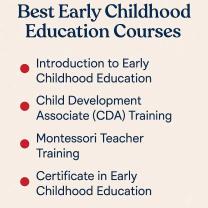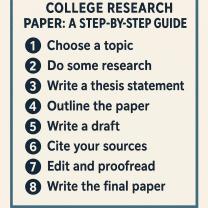How to find the perfect preschool?
Finding the ideal preschool for your child involves careful consideration of various factors to ensure a safe, nurturing, and educational environment. Here's a step-by-step guide to help you in your search:
1. Define Your Priorities:
- Identify your priorities and values regarding your child's early education. Consider factors such as location, cost, curriculum, teacher-student ratio, and overall educational philosophy.
2. Research Local Options:
- Look for preschools in your local area. Consider asking friends, family, and neighbors for recommendations. Online reviews and community forums can also provide valuable insights.
3. Visit Preschools:
- Schedule visits to potential preschools. During the visits, observe the classrooms, play areas, and overall cleanliness. Pay attention to the atmosphere and how teachers interact with children.
4. Check Accreditation and Licensing:
- Ensure that the preschool is accredited by relevant educational organizations. Check if the facility is licensed and meets safety and health standards.
5. Review Curriculum:
- Inquire about the curriculum and teaching methods. Ask how they balance structured learning and playtime. Ensure that the curriculum aligns with your educational values and goals for your child.
6. Teacher Qualifications:
- Ask about the qualifications and experience of the teachers. A well-qualified and experienced staff is crucial for providing a high-quality early education.
7. Class Size and Teacher-Student Ratio:
- Consider the class size and teacher-student ratio. Smaller class sizes and lower ratios allow for more individualized attention and a better learning experience.
8. Safety and Cleanliness:
- Assess the safety measures in place, including emergency procedures, secure entrances, and cleanliness. Ensure that the preschool follows proper health and safety protocols.
9. Parental Involvement:
- Inquire about the level of parental involvement encouraged by the preschool. A school that values communication and collaboration with parents often provides a more supportive environment for children.
10. Ask for References:
- Request references from current or past parents. Speaking with other parents can provide valuable insights into the preschool's strengths and potential areas for improvement.
11. Consider Location and Schedule:
- Evaluate the location of the preschool in relation to your home or workplace. Additionally, check if the schedule aligns with your family's needs and routines.
12. Understand Policies and Procedures:
- Review the preschool's policies on discipline, communication, and any other important areas. Ensure that you are comfortable with their approach and procedures.
13. Evaluate Facilities:
- Assess the quality of facilities, including play areas, classrooms, and any additional amenities. A well-maintained and stimulating environment contributes to a positive learning experience.
14. Trust Your Instincts:
- Ultimately, trust your instincts and feelings about the preschool. A positive gut feeling about the environment, staff, and overall atmosphere is essential for your child's well-being and development.
15. Financial Considerations:
- Consider the cost of tuition and any additional fees. Ensure that the financial aspects align with your budget and that you fully understand the payment structure.
By systematically considering these factors, you can make an informed decision when choosing the ideal preschool for your child. Visiting multiple preschools and asking questions will help you find the best fit for your family's needs and values.
How can one find the perfect preschool for their child?
Finding the perfect preschool for your child can be a daunting task, but it's important to take your time and do your research to find a program that meets your child's individual needs and learning style. Here are a few steps you can take to find the perfect preschool for your child:
- Start by talking to your child's pediatrician or other early childhood professionals. They may have recommendations for preschools in your area.
- Ask your friends, family, and neighbors for recommendations. They may have children who attend preschools that you can check out.
- Research preschools online and in your community. Read reviews and compare curriculum and philosophies.
- Schedule visits to your top preschools. This will give you a chance to see the environment, meet the teachers, and ask questions.
What steps can parents take to evaluate different preschool options?
Once you have a list of potential preschools, it's important to evaluate each one carefully to ensure it's the right fit for your child. Here are some steps you can take to evaluate different preschool options:
- Consider your child's individual needs and learning style. Some preschools are more structured, while others are more play-based. Choose a program that aligns with your child's preferences and developmental stage.
- Visit the preschools in person. Observe the classrooms, meet the teachers, and talk to other parents. Get a feel for the overall environment and atmosphere.
- Ask questions about the preschool's curriculum, teaching methods, and policies. Make sure you understand the program's philosophy and approach to early childhood education.
- Talk to your child about their impressions of the preschools they visited. Ask them what they liked and disliked about each program.
Are there specific qualities to prioritize when seeking a preschool?
Here are some specific qualities you may want to prioritize when seeking a preschool:
- Qualified and experienced teachers: Look for teachers who have a deep understanding of child development and early learning principles.
- A safe and nurturing environment: The preschool should be a place where your child feels comfortable and secure.
- A stimulating and engaging curriculum: The preschool should provide a variety of learning activities that are appropriate for your child's age and developmental level.
- Opportunities for social and emotional development: The preschool should provide opportunities for your child to interact with other children and develop their social and emotional skills.
- A strong parent-teacher partnership: The preschool should encourage communication and collaboration between parents and teachers.
Remember, there is no one-size-fits-all preschool, so it's important to find a program that meets your child's individual needs and preferences. Take your time, do your research, and trust your instincts. The perfect preschool for your child is out there!












